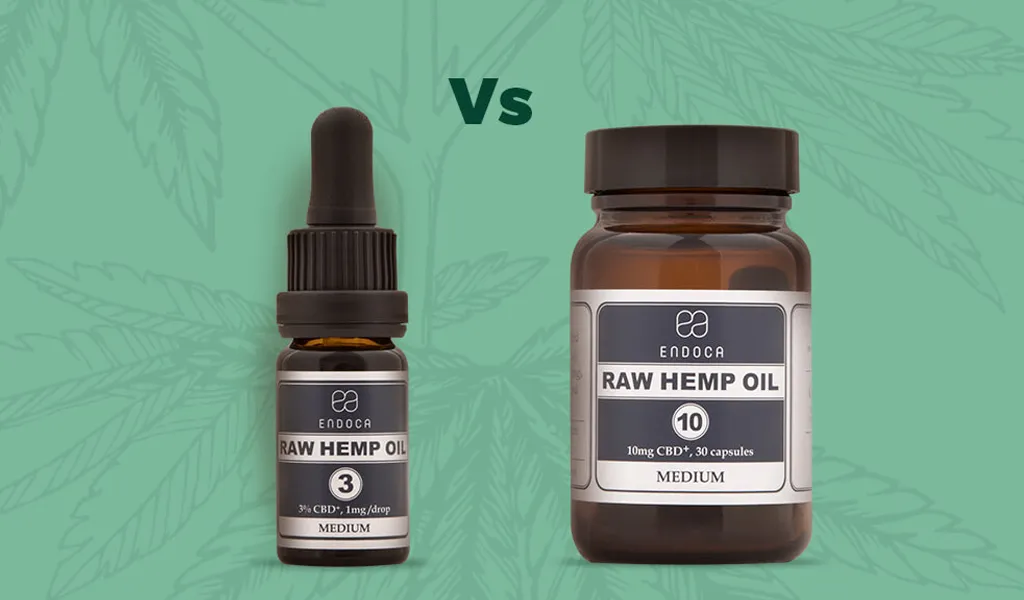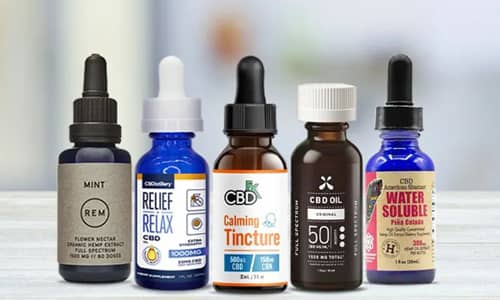CBD Oil vs. CBD Capsules: Which is Right for You?
With the rising interest in CBD (cannabidiol) as a natural remedy for various health issues, more consumers are exploring how to incorporate it into their daily routines. Two of the most popular forms of CBD are oils and capsules. Each has its unique advantages and drawbacks, leading many to wonder which option is right for them. This comprehensive guide will delve into the characteristics of CBD oil and CBD capsules, helping you make an informed choice based on your personal preferences and health goals.
What is CBD?
Before we dive into the specifics of oils and capsules, let’s take a moment to understand what CBD is. CBD is a non-psychoactive compound derived from the cannabis plant, specifically hemp. Unlike THC (tetrahydrocannabinol), the psychoactive compound that produces a “high,” CBD is known for its potential therapeutic benefits without the intoxicating effects.
CBD interacts with the body’s endocannabinoid system (ECS), which plays a crucial role in regulating various physiological processes, including pain, mood, appetite, and immune response. Research suggests that CBD may help alleviate symptoms related to anxiety, chronic pain, inflammation, sleep disturbances, and more.
Understanding CBD Oil
What is CBD Oil?
CBD oil is a liquid extract made from the flowers, leaves, and stalks of the hemp plant. It is typically infused with a carrier oil, such as coconut or hemp seed oil, to enhance absorption and provide additional health benefits. CBD oil can come in various concentrations and formulations, allowing for customization based on individual needs.
How to Use CBD Oil
CBD oil can be administered in several ways:
- Sublingual Administration: The most common method involves placing a few drops under the tongue and holding it there for 30-60 seconds before swallowing. This allows for quick absorption directly into the bloodstream.
- Ingesting: You can add CBD oil to food or beverages, but be mindful that this method may result in slower absorption due to the digestive process.
- Topical Application: Some people use CBD oil topically to target localized pain or inflammation by applying it directly to the skin.
Pros of CBD Oil
- Fast Absorption: When taken sublingually, CBD oil is absorbed quickly into the bloodstream, providing faster relief from symptoms.
- Customizable Dosage: Users can easily adjust the dosage by measuring out drops, making it easier to find the right amount for individual needs.
- Versatile Uses: CBD oil can be used in various ways, allowing for creative applications, such as mixing it into recipes or topical formulations.
Cons of CBD Oil
- Taste: Some users may find the natural taste of CBD oil unpleasant, although flavored options are available.
- Messy Application: The dropper method can lead to spills or incorrect dosages if not careful.
- Shorter Duration: Effects may wear off more quickly than with capsules, requiring more frequent dosing throughout the day.
Understanding CBD Capsules
What are CBD Capsules?
CBD capsules are pre-measured doses of CBD oil encapsulated in a gel or vegetarian capsule. They offer a convenient and discreet way to consume CBD, making them ideal for those who prefer a simple, no-fuss approach to supplementation.
How to Use CBD Capsules
Using CBD capsules is straightforward—simply swallow the capsule with water, similar to taking any other dietary supplement. Capsules typically come in standardized doses, ensuring consistent CBD intake with each use.
Pros of CBD Capsules
- Convenience: Capsules are easy to carry and consume on-the-go, making them suitable for busy lifestyles.
- Taste-Free: Unlike CBD oil, capsules do not have any taste, making them a preferable option for those who dislike the flavor of oil.
- Longer Lasting Effects: The slow digestion process may result in prolonged effects, making capsules suitable for individuals seeking longer-lasting relief.
Cons of CBD Capsules
- Slower Onset: Capsules must pass through the digestive system before the CBD is absorbed, resulting in a delayed onset of effects (typically 30-90 minutes).
- Fixed Dosage: Capsules come in pre-measured doses, which can limit customization and make it challenging to find the perfect dosage for individual needs.
- Less Versatile: Unlike oil, capsules cannot be mixed into foods or beverages, limiting their application.
Key Differences Between CBD Oil and Capsules
| Feature | CBD Oil | CBD Capsules |
|---|---|---|
| Absorption Rate | Fast (sublingual) | Slow (digestion required) |
| Dosage Control | Easily adjustable | Fixed dosage |
| Convenience | Requires measuring and possible spills | Easy and discreet to carry |
| Taste | May have an earthy flavor | Tasteless |
| Duration of Effects | Shorter duration | Longer-lasting effects |
| Versatility | Can be mixed into foods/beverages | Limited to oral consumption |
Choosing the Right Option for You
When deciding between CBD oil and capsules, consider the following factors:
1. Your Health Goals
- For Quick Relief: If you’re seeking rapid relief from anxiety, pain, or other symptoms, CBD oil may be the better choice due to its faster absorption.
- For Long-Term Benefits: If you want to incorporate CBD into your daily routine for ongoing wellness, capsules may offer a more straightforward solution with longer-lasting effects.
2. Your Lifestyle
- On-the-Go: If you have a busy lifestyle and need something portable, CBD capsules are easy to take and carry with you.
- Home Use: If you’re primarily using CBD at home, oil may provide a more customizable experience.
3. Taste Preferences
- Flavor Concerns: If you dislike the taste of CBD oil, capsules are a flavorless alternative that still provides the benefits of CBD.
4. Dosage Preferences
- Custom Dosage: If you prefer to adjust your dosage easily, CBD oil allows for flexible dosing based on your individual needs.
- Standardized Dosing: If you prefer consistency and simplicity, capsules come in predetermined doses, making it easier to track your intake.
How to Determine the Right Dosage
Regardless of whether you choose CBD oil or capsules, finding the appropriate dosage is crucial for maximizing the benefits of CBD. Here are some guidelines to help you determine the right dosage for your needs:
1. Start Low and Go Slow
Begin with a low dosage, typically between 5-10 mg of CBD, and gradually increase until you achieve the desired effects. This approach allows you to assess your body’s response to CBD without overwhelming it.
2. Consider Your Weight and Individual Factors
Factors such as body weight, metabolism, and the severity of your symptoms can influence how much CBD you should take. A general guideline is to take 1-6 mg of CBD for every 10 pounds of body weight, adjusting as necessary.
3. Monitor Your Response
Keep a journal of your dosage and any changes in your symptoms. This record can help you fine-tune your dosage and identify what works best for you.
4. Consult with a Healthcare Professional
If you have underlying health conditions or are taking other medications, consult with a healthcare professional before starting CBD. They can provide personalized guidance based on your health history and goals.
Safety and Side Effects of CBD
CBD is generally considered safe for most individuals, but some may experience mild side effects, including:
- Fatigue
- Diarrhea
- Changes in appetite
- Dry mouth
It’s essential to start with a low dose and monitor your body’s response to minimize the risk of side effects. Additionally, always choose high-quality CBD products from reputable sources to ensure safety and efficacy.
Final Thoughts: Finding Your Ideal CBD Product
The choice between CBD oil and capsules ultimately depends on your personal preferences, health goals, and lifestyle. CBD oil offers fast absorption and customizable dosages, while capsules provide convenience and longer-lasting effects. By considering your individual needs and preferences, you can make an informed decision that enhances your wellness journey.
As with any supplement, it’s essential to do your research, consult with healthcare professionals, and start with a low dosage to find what works best for you. With the growing body of evidence supporting the benefits of CBD, both forms can play a valuable role in promoting overall health and well-being.
Whether you choose CBD oil or capsules, incorporating this natural compound into your daily routine can help support your physical and mental wellness, empowering you to lead a healthier and more balanced life.



